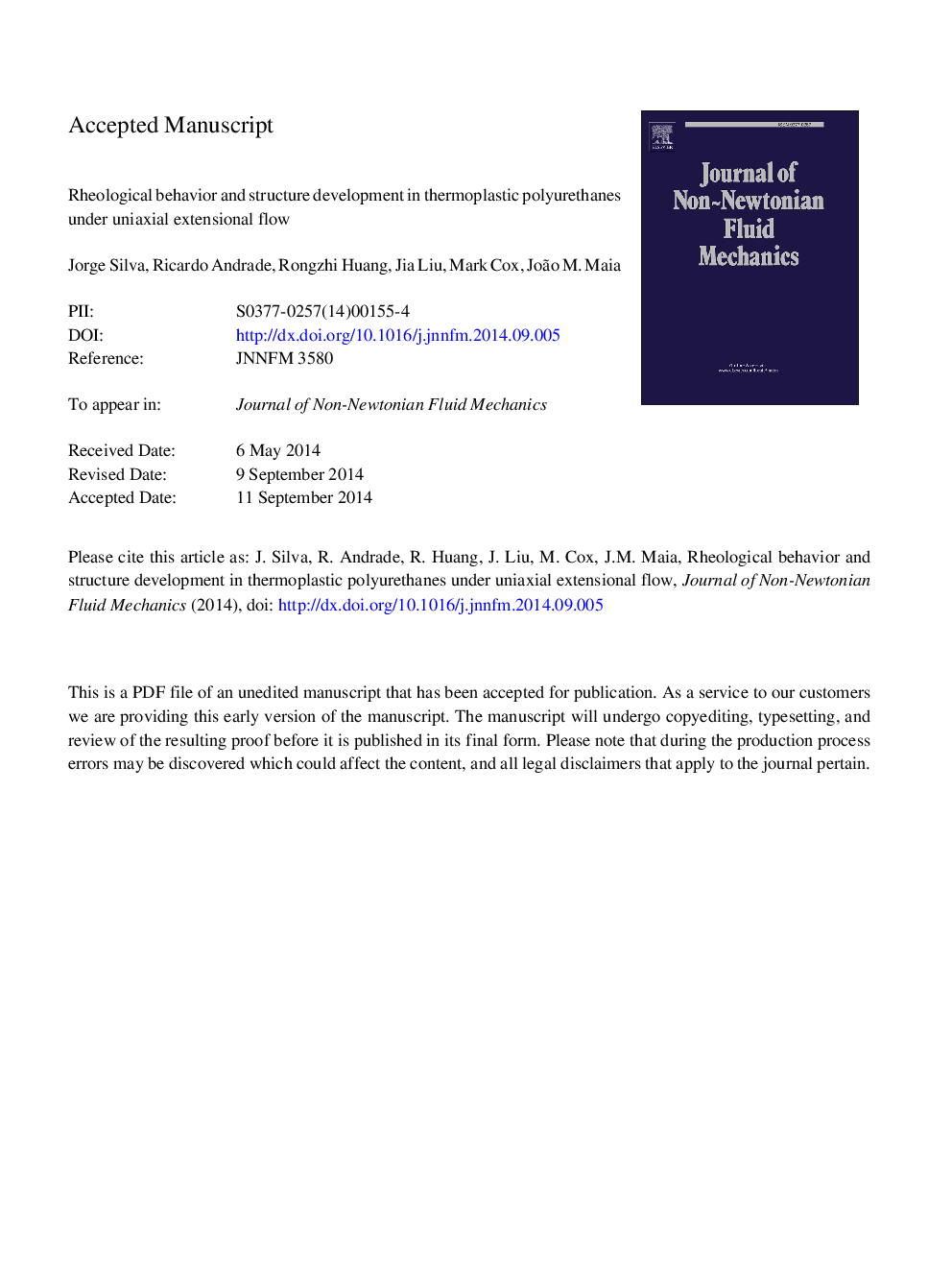| Article ID | Journal | Published Year | Pages | File Type |
|---|---|---|---|---|
| 7061331 | Journal of Non-Newtonian Fluid Mechanics | 2015 | 18 Pages |
Abstract
In this work, the rheological and structural changes induced by uniaxial extensional flows are studied for two aromatic TPUs: an elastomeric (soft) material composed both of hard and soft segments and an amorphous glass (hard) one composed almost exclusively by hard segments. The uniaxial extensional viscosity was measured on a Sentmanat fixture (SER) at single temperature of 175 °C, showing that at high strain rates both materials initially strain-soften before eventually strain-hardening at higher Hencky strains. This effect is smoother and occurs at lower strain rates for the soft TPU. Optical microscopy, atomic force microscopy and X-ray scattering show this behavior to be related with structural changes induced by the flow. Strain-softening is attributed to the orientation of hard domains in the flow direction. In the soft TPU strain-hardening is caused by the stretching of entangled soft segments but in the hard one it appears to be associated with microcracks and with the development of a hitherto unreported hierarchical structure in the molten material.
Related Topics
Physical Sciences and Engineering
Chemical Engineering
Fluid Flow and Transfer Processes
Authors
Jorge Silva, Ricardo Andrade, Rongzhi Huang, Jia Liu, Mark Cox, João M. Maia,
